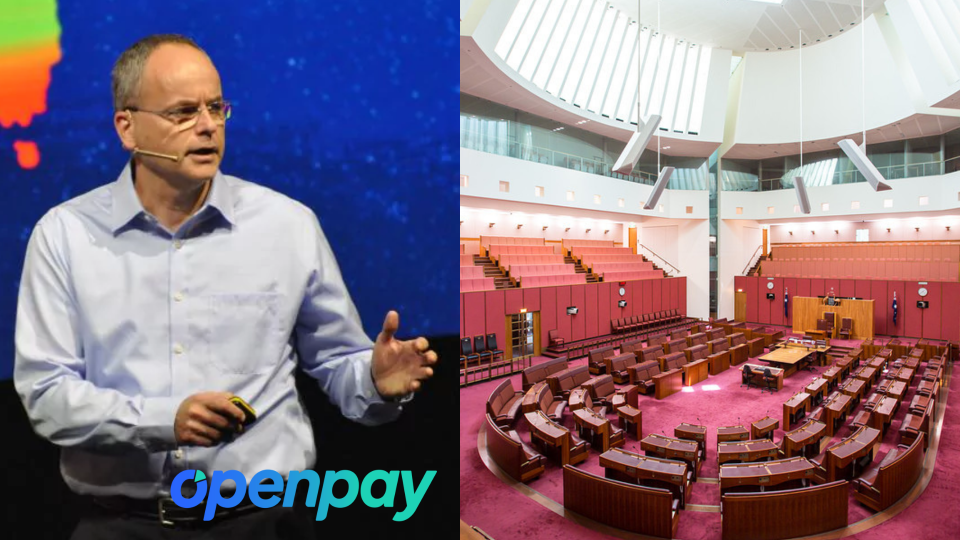Openpay chairman defends 'buy now, pay later' model

Openpay executive chairman Avi Schechter has defended buy-now-pay-later firms, saying stringent screening processes protect customers from accessing debt they can’t afford.
Companies like Afterpay and Openpay will need to prove they’re not modern-day “loan sharks” or “debt vultures”, as a Senate inquiry into payday lenders and buy-now-pay-later firms looms.
So how are payday lenders protecting vulnerable customers from slipping further into debt?
Tough screening processes
Schechter told Yahoo Finance that processes and complex algorithms embedded in its platform screened and verified customers before a loan was approved.
“We have a very strong system that, I can tell you today, is screening out around 25 per cent of all requests coming to the system on suspicious false identification,” Schechter said.
“We’re using a third party which is a service bureau that would give us [third party] verification to any ID that we do. This is basic,” he added.
“A lot of the – let’s call it ‘monkey-business’ – is screened out even before beginning.”
For every transaction, the “parameters of the transaction” were taken into consideration, such as who the merchant was, what the product was, the amount of the transaction value, the location, the customer, and where they lived.
“We run what we call internal risk and credit check assessment[s],” Schecter said. “And I can tell you that we have around 6-10 per cent of people that are being rejected.”
This is because the person did not match Openpay’s profiling criteria of lending money, whether it was due to an amount that was too high, a product too risky, an age that was “not the right one,” and location.
Also read: This slip-up is costing you $200
“Many, many many considerations,” Schechter said. “We are crunching around 200 different data points [in] a millisecond to [make] a decision.”
Furthermore, for highly-priced items above a certain threshold, a credit check was conducted with an external service bureau, meaning that Openpay would access a customer’s credit history.
Every step of this process is done with the consent of the customer.
“The customer must consent,” Schechter said. “And if not, we just don’t proceed and we decline the request.”
A potential transaction would have to first take into consideration the potential lender’s history and track record.
“Only then, with the information that we’ve already processed from our system, [only] then we lend the money.”
This entire process happens in milliseconds, the payment firm chairman added.
“The way that we look on our process is that we have the responsibility to make sure that we can balance between the commercial need and the risk.
Also read: Westpac profits fall flat at $8.065bn
“And all the time we need to balance between the two. I prefer to lose the transaction rather than to go and then chase someone to get the money back, because in most cases, you’ll not see the money.”
On top of these processes and checks, Openpay complied with regulation that stipulated it could not charge more than $200 in fees in the customer’s first year of borrowing, and not more than $225 in the second year.
Buy-now-pay-later firms also have to comply with anti-money laundering laws that request they conduct an ID check so the person they’re lending to is who they say they are.
“So [when people talk about] the good things and the bad things, the bad things are all these people trying to fraud the system.”
Late payment penalties an ‘evil necessity’
The firm’s chairman stated that Openpay did not run its revenue model based on late payment fees, with the penalties making up only 1.55 per cent of their total revenue.
“It’s an evil necessity that we need to deal with because [not all] customers are going to pay on time.”
He added that most customers who “honestly” missed their payments would get in touch via the call centre or the app.
“They can change the date, they can extend it, and then we just waive the payment and give them their bill, because at the end of the day we want them to use us and reuse us again and again,” Schechter said.
Also read: This is why your super fund won’t tell you where your money is invested
Make your money work with Yahoo Finance’s daily newsletter. Sign up here and stay on top of the latest money, news and tech news.

 Yahoo Finance
Yahoo Finance 
